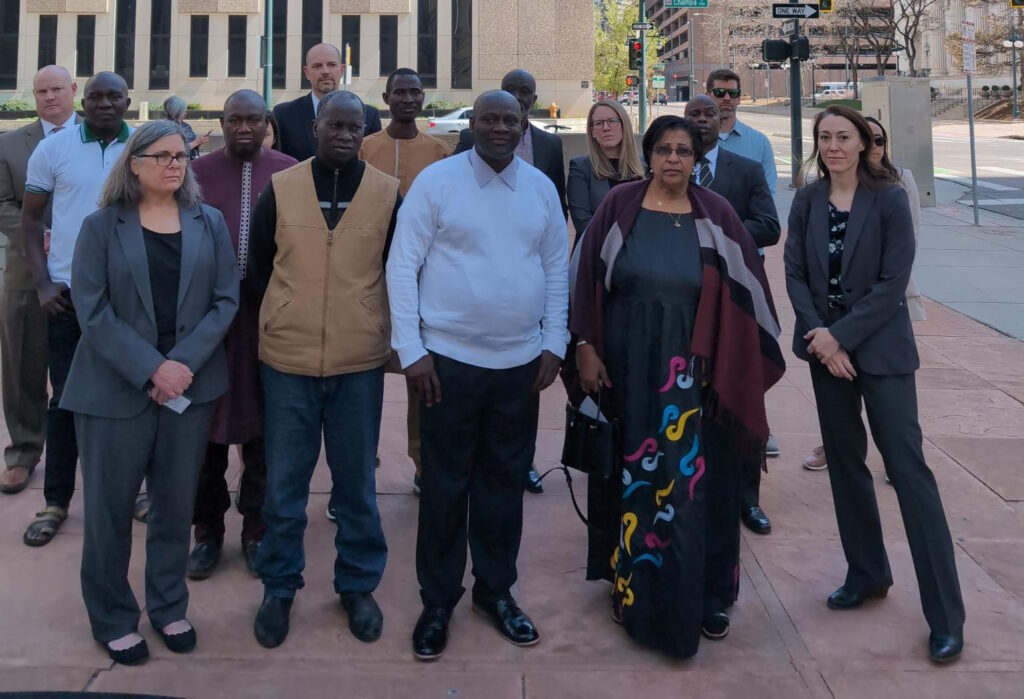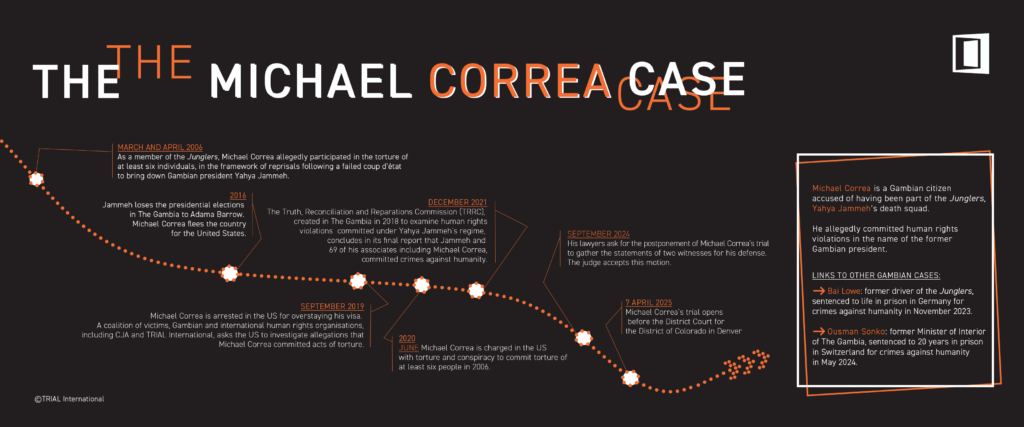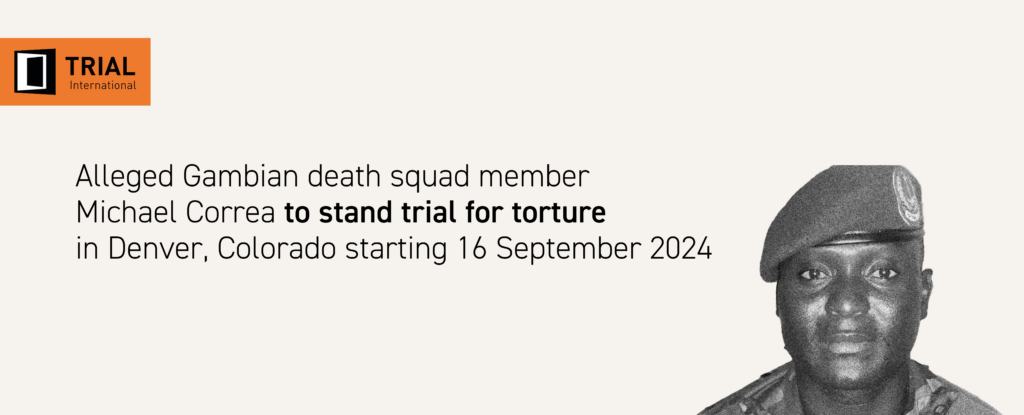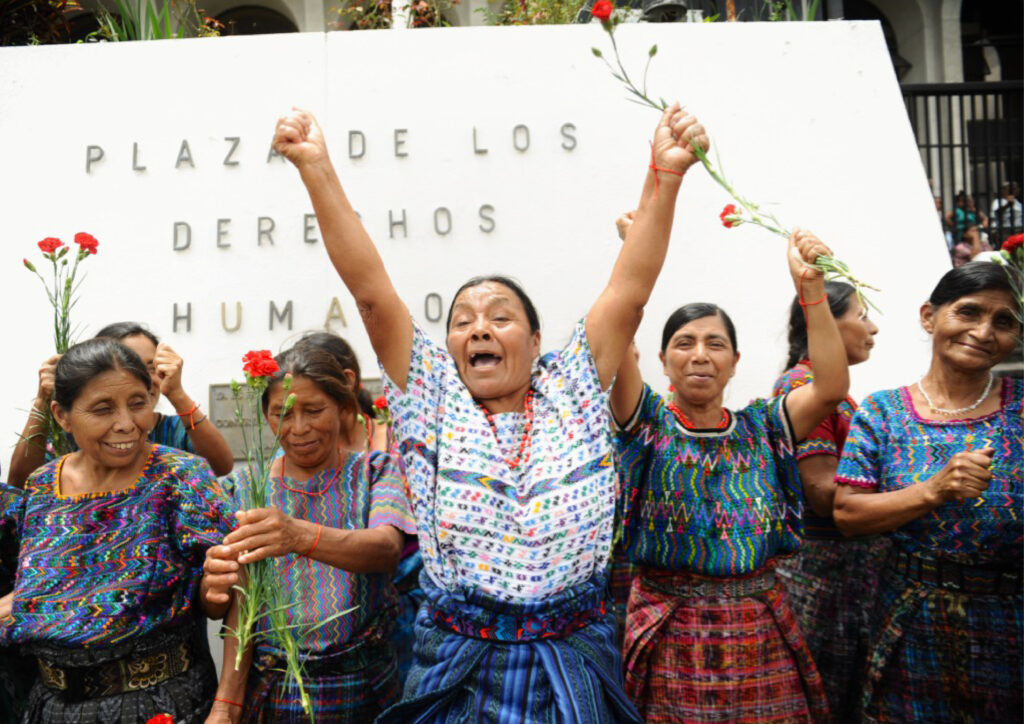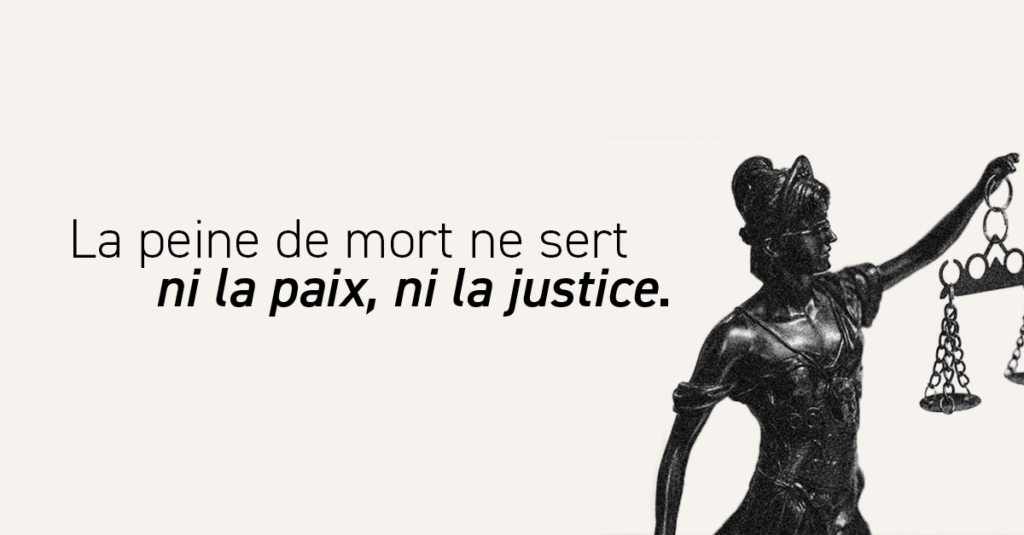Enforced Disappearance of Milan Nepali in May 1999
The Case
In May 2012, TRIAL submitted an individual communication to the United Nations Human Rights Committee regarding the enforced disappearance of Mr. Milan Nepali in May 1999. In this communication, TRIAL also represents the victim’s wife, Mrs. Sabita Basnet.
At the time of his arbitrary arrest and subsequent disappearance, Mr. Nepali was working as a journalist for a left-wing (Maoist) daily newspaper, Janadesh in Kathmandu, Nepal. Mr. Nepali was an active member of the Communist Party of Nepal – Maoist (CPN-M) and participated regularly in party activities.
At approximately 13h on 21 May 1999, Mrs. Basnet witnessed six or seven unarmed policemen – half of them in uniform, half in civilian dress – approach her husband, Mr. Nepali in Sundhara, near Telbahal, Kathmandu and inform him that he had to come with them for questioning. Mr. Nepali was not accused of any offence at the time of his arrest. He was not handcuffed, and walked without resistance with the policemen to a nearby civilian mini-van. Mr. Nepali was then told by the policemen to get in the mini-van and driven away to an unknown destination.
The family of Mr. Milan Nepali took a number of steps to try and locate him following his arrest. On 22 May 1999, Mrs. Basnet went to every police station and sub-station in Kathmandu in search for her husband. She continued to do this until 4 June 1999, when she received an anonymous phone call informing her that Mr. Nepali was being held in the Police headquarters, Naxal, Kathmandu.
The following day, on 5 June 1999, Mrs. Basnet went to the Police headquarters in Naxal and asked to see her husband. The police refused her request but allowed Mrs. Basnet to hand over some clean clothes for Mr. Nepali. On 10 June 1999, Mrs. Basnet and her friend visited the Police headquarters again in order to hand over some more clean clothes for Mr. Nepali. After the exchange of clothes had taken place, Mrs. Basnet and her friend walked to a nearby raised piece of land as its increased elevation enabled them to see into the inner compound of the Police headquarters. It was from this raised piece of land, at approximately 0800 hrs, that both Mrs. Basnet and her friend saw Mr. Nepali for approximately two minutes as he was taken to and from the toilet by a single policeman. Mr. Nepali was reportedly handcuffed, but looked in fairly good physical condition. Mrs. Basnet shouted out to try and get her husband’s attention, but she was too far away and he did not hear. The above sighting of Mr. Nepali inside the Police headquarters in Naxal, Kathmandu on 10 June 1999 was the last time that Mr. Nepali was reportedly seen, alive or dead, following his arrest from Sundhara, near Telbahal, Kathmandu on 21 May 1999.
On 26 May 1999, a friend of Mr. Nepali, Mr. Ashok Maharjan, filed a habeas corpus writ before the Supreme Court. The Supreme Court quashed the writ on 12 July 1999 on the grounds that the whereabouts of Mr. Nepali could not be established thereby rendering the habeas corpus writ inapplicable. On 17 August 1999, Mrs. Basnet filed a habeas corpus writ herself before the Supreme Court. The Supreme Court quashed this writ on 5 July 2000 similarly reasoning that since Mr. Nepali’s whereabouts could not be established, the habeas corpus writ was once again inapplicable.
The family of Mr. Nepali also took a number of non-legal measures in an attempt to uncover information about his fate and whereabouts. On 14 June 1999, the family of Mr. Nepali and six other victims of enforced disappeared held a press conference and issued an appeal requesting the general public and government authorities to come forward if they had any information regarding Mr. Nepali’s whereabouts. On 20 June 1999, the family of Mr. Nepali submitted a written appeal to the Parliament requesting that the whereabouts of Mr. Nepali and fifteen other disappeared individuals be made public and that they be immediately released from police custody. On 20 September 1999, the Families of Victims of State Disappearance Association (FVSDA), co-founded by Mrs. Nepali, handed over a written appeal to the Prime Minister. On the same date, the FVSDA released a press statement requesting again that Mr. Nepali and other disappeared individuals’ whereabouts be made public and that they immediately be released from police custody.
Mrs. Nepali also contacted Amnesty International (AI) in July 1999 and informed the organisation about her husband’s disappearance. AI issued two urgent action appeals in response to Mrs. Nepali’s request for assistance: the first urgent action appeal was released by AI on 13 August 1999 and the second in February 2000.
Apart from minimal interim compensation of NRs. 100,000 (890 Euros) received in 2008, the family of Mr. Nepali has received neither truth and justice nor adequate reparations from the Government of Nepal for the tragic loss of their loved one.
In May 2012, TRIAL submitted an individual communication to the United Nations Human Rights Committee requesting it to:
- recognise that the State of Nepal has violated numerous articles of theInternational Covenant on Civil and Political Rights due to Mr. Nepali’s enforced disappearance, the ongoing failure of Nepalese authorities to conduct an effective investigation and prosecution of the crime and the ensuing suffering endured by Mr. Nepali’s spouse owing to the disappearance of their loved one;
- request that the State of Nepal initiate a thorough and independent investigation into the arbitrary deprivation of liberty and enforced disappearance of Mr. Milan Nepali and, in the event of his death, the localization, exhumation, identification and restitution of his mortal remains to the family;
- request that the State of Nepal investigate, prosecute and punish those responsible for Mr. Nepali’s disappearance;
- request that the State of Nepal immediately suspend from office all Nepal Police personnel against whom there is prima facie evidence that they were involved in the enforced disappearance of Mr. Milan Nepali pending the outcome of investigations against them;
- request that the State of Nepal ensure that the authors obtain prompt, fair and adequate compensation covering both material and moral damages and that measures of reparation adopted in their favour incorporate measures aiming at providing restitution, rehabilitation, satisfaction (including restoration of dignity and reputation) and guarantees of non-repetition.
General context
The enforced disappearance of Mr. Nepali is part of the context of internal armed conflict which Nepal has experienced between February 1996, when the Communist Party of Nepal (Maoist) overtly declared war against the official governmental authorities of Nepal, and November 2006, when the different parties to the conflict signed the Comprehensive Peace Agreement sanctioning a formal end to hostilities. The decade long armed conflict from 1996-2006 caused not only severe economic and social damages in Nepal but also put the country’s name in the list of the top human rights violators worldwide. The recourse to enforced disappearances, torture, summary executions and arbitrary detentions by State agents and Maoists was generalized during this period.
Despite the signature of a peace agreement between the Maoists and the government in November 2006, the authorities have failed to initiate any serious investigations into the crimes perpetrated during the war and not a single perpetrator has been convicted to date. As a result, over five years after the conclusion of the conflict, perpetrators still enjoy absolute immunity from prosecution, while victims continue to be denied their fundamental rights to truth, justice and reparations.

